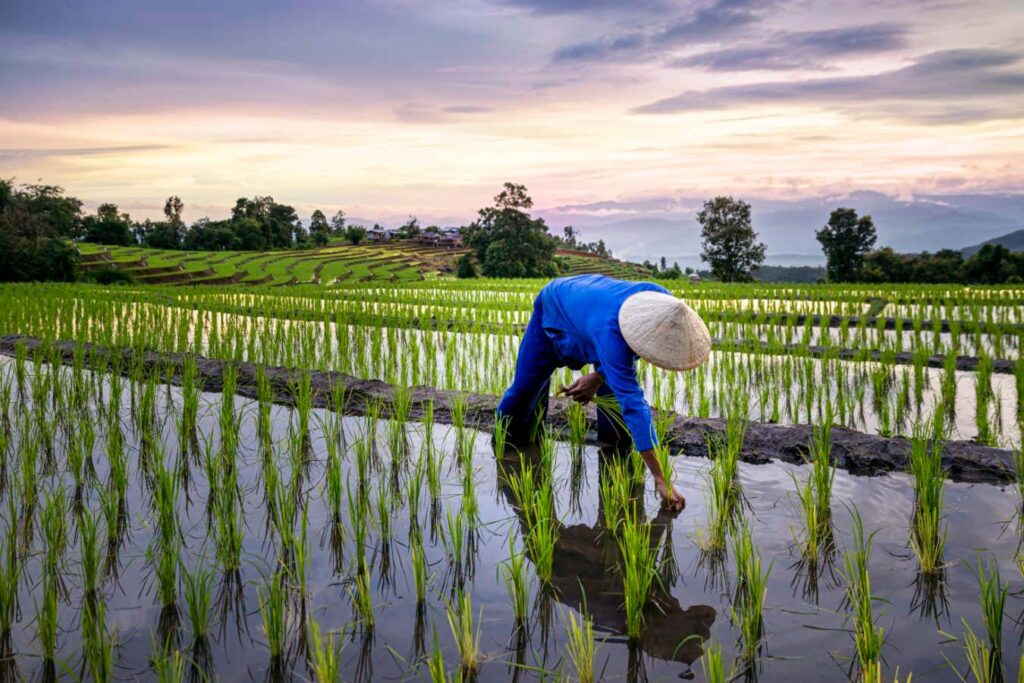Rice fields are a major source of methane emissions
Thirawatana Phaisalratana/iStockphoto/Getty Images
A new variety of rice created by simple crossbreeding could reduce the crop’s emissions of methane, a powerful greenhouse gas, by nearly three-quarters.
Rice growing is responsible for around 12 per cent of anthropogenic release of methane, a gas that has a warming effect 25 times stronger than that of carbon dioxide.
The emissions come from soil microbes in the flooded paddy fields where rice is grown. These organisms break down chemicals known as root exudates released by the plants, producing nutrients that the plants can use, but also making methane in the process.
To learn more about factors affecting the production of methane from rice roots, Anna Schnürer at the Swedish University of Agricultural Sciences and her colleagues grew two strains of rice in a laboratory: a Japanese cultivar called Nipponbare with average methane emissions and a genetically modified strain with low methane emissions called SUSIBA2.
SUSIBA2 produced less fumarate, a root exudate known to be a key driver of methane emissions, than Nipponbare. But when both strains were treated with oxantel, a chemical that inhibits the breakdown of fumarate by bacteria, the SUSIBA2 strain still produced less methane. This meant there must be another factor causing the difference between the varieties.
It turned out that the SUSIBA2 crop was secreting high levels of ethanol, which also seemed to be suppressing methane emissions.
The team then turned to traditional breeding techniques to produce a new rice strain by crossing a high-yield elite variety with the Heijing cultivar, a strain that produces low fumarate and high ethanol.
Over two years of field trials in China, the new strain produced crop yields of more than 8 tonnes per hectare, compared with the global average of just over 4 tonnes, and it emitted 70 per cent less methane than the elite variety it was bred from.
Johannes le Coutre at the University of New South Wales in Sydney, Australia, says the study is an example of well-executed research into the culprits behind the crop’s greenhouse gas emissions.
“The core point of the study is they don’t use hard-core gene engineering or editing technologies or transgenic approaches,” says le Coutre. “They use traditional crossbreeding in order to create new rice lines which lower the synthesis of methane.”
Topics:

